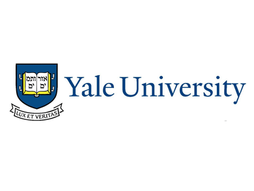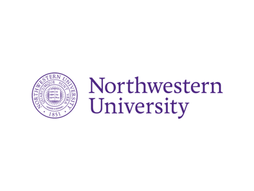National STEM Challenge for High Schoolers—Should You Participate?
If you’re a high schooler seriously considering pursuing a STEM degree, participating in academic competitions is a great way to boost your profile and showcase your academic achievements to admissions officers. But with so many options out there, it can be daunting to find a competition that offers the best value for your time and effort.
To help you in your search, our blog today focuses on the National STEM Challenge, a prestigious competition that challenges you across a variety of STEM fields and provides an excellent platform for exposure and learning.
What is the National STEM Challenge?
The National STEM Challenge is a virtual competition designed to encourage creativity and problem-solving skills in STEM among middle schoolers and high schoolers. It provides a platform for you to tackle real-world problems by developing a project that addresses one of six “themes” representing globally relevant challenges.
While the competition and all its attendant submissions are virtual, there is a significant points advantage for well-tested, prototyped submissions. The best projects from across the country are selected to attend the National STEM Festival in Washington, D.C., co-hosted by the US Department of Education and EXPLR.
Is the National STEM Challenge prestigious?
The National STEM Challenge is highly competitive and brings in thousands of participants from across the nation, making it a great opportunity to stand out among your peers. The Challenge selects finalists from each state, showcasing the top young scientific minds in the nation.
The challenge is sponsored by such notable organizations as the Walton Family Foundation, Qualcomm, Canva, the Broadcom Foundation, and more. The National STEM Festival itself is co-hosted by the US Department of Education, further enhancing its prestige. Winning or even placing high in this competition can be a huge boost to your profile and your college applications, demonstrating your passion for STEM and your ability to compete at a national level.
Who is eligible to apply?
The National STEM Challenge is open to individual students in grades 6 through 12 attending school in the United States and its territories.
What are the key phases of the challenge?
The National STEM Challenge progresses in the following phases:
Ideation & Design Phase: This phase kicks off on September 12th. This is when you brainstorm ideas, choose a theme, and solidify your project concept.
Application opens: On October 4th, applications officially open. This is when you can submit your 3-page project proposal document. More on that in the next section.
Application deadline: All applications must be submitted by November 15th. Don't miss this deadline!
Finalist announcement: Challenge finalists from each state are announced on December 22nd.
National Champions Announced: The National STEM Champions are revealed on February 12th.
National STEM Festival: On April 12th, all selected National Champions will get to participate in the National STEM Festival in Washington, D.C.
How is the National STEM Challenge structured?
The National STEM Challenge revolves around a few central themes that change each year. Once you've chosen a theme, you'll need to develop a project that addresses a real-world problem related to that theme. Your project proposal should outline your approach, including an explanation of how your project addresses the chosen theme.
If your project follows the scientific method, it should be tested. If it uses the engineering design process, it should be constructed. Projects that are solely theoretical will receive lower scores.
For 2024, the themes were:
Environmental Stewardship: Focus on solutions to environmental challenges such as climate change, pollution, resource conservation, or biodiversity preservation. Possible projects could include developing sustainable energy solutions, creating innovative waste management systems, or designing strategies for habitat restoration.
Future Foods: Explore innovative approaches to food production, distribution, or consumption. Consider projects related to sustainable agriculture, food security, food waste reduction, or alternative protein sources.
Health & Medicine: Tackle challenges in healthcare or medical science. Possible projects could involve developing medical devices, creating new diagnostic tools, addressing public health issues, or exploring advancements in biotechnology.
Power the Planet: Investigate solutions to energy challenges. This theme encourages projects related to renewable energy sources, energy storage, energy efficiency, or grid modernization.
Space Innovation: Explore the possibilities of space exploration and its impact on Earth. Consider projects focused on space technology, satellite applications, space settlement, or astrophysics research.
Tech for Good: Develop technology-based solutions to social and humanitarian problems. Possible projects could involve creating educational tools, accessibility solutions, disaster response systems, or platforms for social change.
Once you've selected a theme, you'll need to identify a specific problem within that theme and develop a solution. Your project proposal should outline your project's objectives, methodology, expected outcomes, and potential impact.
Judging criteria: Projects will be evaluated based on the following criteria:
Creativity and Innovation: How original and imaginative is the project idea?
Problem-solving: Does the project effectively address a real-world problem?
Scientific Merit: Is the project based on sound scientific principles?
Feasibility: Is the project realistic and achievable?
Impact: What is the potential impact of the project?
Communication: How well is the project presented and explained?
The Challenge involves two rounds of judging, with finalists presenting their projects to a panel of experts. The final winners are selected based on their overall performance and the potential impact of their projects.
Pros and cons of participating
Pros
Strengthens your college application: Colleges love to see students who are passionate about their chosen academic fields and participate in challenging academic competitions. The National STEM Challenge is a great way to showcase your abilities and dedication.
Develops problem-solving skills: The Challenge pushes you to think critically and creatively to find solutions to real-world problems. This is a valuable skill that will benefit you not only in STEM fields but also in all aspects of life.
Boosts your resume: Participating in a prestigious competition like the National STEM Challenge gives you a significant accomplishment to add to your resume or college application portfolio.
Learn from experts: The National STEM Challenge provides access to valuable resources and mentorship opportunities. If you attend the finalist conference, you'll gain insights from professionals in STEM fields, helping you grow your knowledge and refine your skills.
Cons
Time commitment: Developing a competitive project for the National STEM Challenge requires time and effort. Be sure you can dedicate the necessary time to research, plan, and execute your project.
Competition level: The National STEM Challenge is highly competitive. Don't get discouraged if you don't win, but put your best foot forward and compete against some of the brightest young minds in the country.
Our review – should you participate?
If you're a high school student passionate about STEM and looking for a challenge, the National STEM Challenge is an excellent opportunity for you. It's a great way to develop your problem-solving skills, gain valuable experience, and potentially impress college admissions officers. While it requires time and dedication, the potential rewards are significant.
One other option — the Lumiere Research Scholar Program
If you’re interested in pursuing independent research, you could also consider applying to one of the Lumiere Research Scholar Programs, selective online high school programs for students founded with researchers at Harvard and Oxford. Last year, we had over 4000 students apply for 500 spots in the program! You can find the application form here.
Also check out the Lumiere Research Inclusion Foundation, a non-profit research program for talented, low-income students. Last year, we had 150 students on full need-based financial aid!
Stephen is one of the founders of Lumiere and a Harvard College graduate. He founded Lumiere as a PhD student at Harvard Business School. Lumiere is a selective research program where students work 1-1 with a research mentor to develop an independent research paper.









